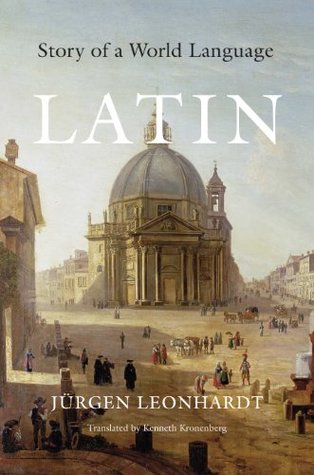More on this book
Kindle Notes & Highlights
Read between
December 20, 2022 - October 19, 2023
As I discussed earlier, despite its being fixed, the Latin of late antiquity functioned like any other language with a living language community. If that had not been the case, there would have been no European Latin millennium.
On the whole, the period between the eighth and the twelfth century witnessed the reclamation of Latin and European literacy. This reclamation was not the work of scholastics per se; rather, it was possible only because a real language community developed for which Latin was a living second language.
How a society was constituted, the rights and duties of princes and subjects, the organization of cities, the institution of schools, taxation—all of these were regulated somehow, sometimes even in written form. But there was no discussion of what sorts of arrangements were best and most universally valid, nor was there any systematic effort to enforce or implement these arrangements.
By contrast, the modern era is characterized by an abundance of ideas about how states and relations should be ordered. The question of just how a government should be organized and how its functions arranged and delegated became central topics of concern in European societies only after the late Middle Ages, after about 1500.
The practice and theory of law were completely remade as a result of the reexamination of ancient Roman law and increasingly tied to the Roman language itself, more so than during the Middle Ages.
between 1536 and 1543, English Chancery Standard became the official language throughout England, including Wales, with Scotland following suit in 1603.
The liveliness of these texts was not the result of the constant use of well-worn expressions or colloquialisms (not to mention vulgarities) but of consistently selecting the right word tailored to each particular situation. This, as Jan Assmann has noted, is what distinguished Greco-Roman written culture from all other high cultures of antiquity.
The production of linguistic uniformity was one of the
crowning achievements of eighteenth- and nineteenth-century pedagogy in the service of nation building.
Whereas a person could make do with only two languages during the Middle Ages, the speaker’s regional language and Latin, international communications now required three or four. This multilingualism continues to haunt the European Union, and for internal communications it is highly unlikely that English will ever be the sole lingua franca.
The decoupling of the value of education from the needs of everyday life, which
characterized the later history of Latin, began at the latest with the successful introduction of humanist methods throughout Europe in the sixteenth century.
The neohumanism of the eighteenth century did much the same; in fact, the neohumanist reformers made every effort to ensure that where Latin instruction had degenerated into the mechanical acquisition of phrases and forms, the classics would be introduced, thereby giving students suitable models to emulate. Not one of the elite neohumanist founders of classical studies ever wrote a book on Latin grammar: not Ernesti or Gesner, not Friedrich August Wolf or the philologist Friedrich Thiersch, not Gesner’s successor, Gottlob Heyne, or Friedrich Creutzer, the founder of the Heidelberg Philological
...more


